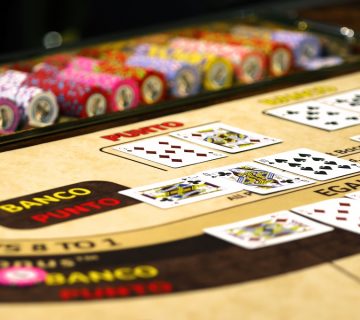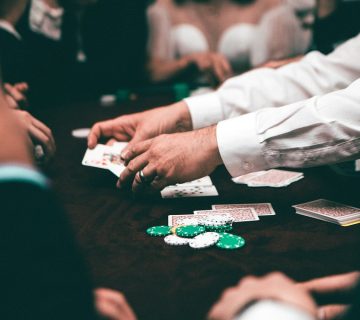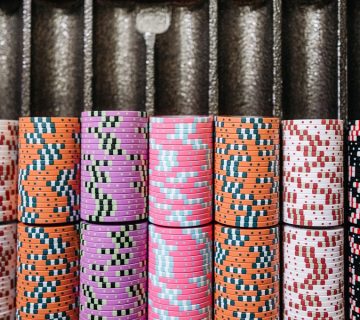Gambling addiction is a serious problem that can have devastating consequences. It can lead to financial ruin, relationship breakdowns, and even suicide. There are many different types of gambling addicts, and each has their own unique characteristics.
The Chaser
Chasers are gamblers who are always trying to win back their losses. They often chase after losses with larger and larger bets, which can lead to a downward spiral. Chasers may also be more likely to engage in risky behaviors, such as borrowing money to gamble or lying about their gambling habits.
The Gambler
Gamblers are people who simply enjoy gambling. They may gamble for fun or for profit, but they are not addicted to it. Gamblers are usually able to control their gambling and do not experience negative consequences as a result of it.
The Problem Gambler
Problem gamblers are people who are unable to stop gambling, even though it is causing them significant problems. They may experience financial difficulties, relationship problems, or legal trouble as a result of their gambling. Problem gamblers may also have underlying mental health issues, such as depression or anxiety.
The Compulsive Gambler
Compulsive gamblers are people who are addicted to gambling. They cannot stop gambling, even though it is destroying their lives. Compulsive gamblers often experience withdrawal symptoms when they try to stop gambling, such as anxiety, restlessness, and irritability.
The Professional Gambler
Professional gamblers are people who make a living from gambling. They are skilled at their craft and have a deep understanding of the games they play. Professional gamblers are typically able to control their gambling and do not experience negative consequences as a result of it.
The Social Gambler
Social gamblers are people who gamble occasionally with friends or family. They are not addicted to gambling and do not experience negative consequences as a result of it. Social gamblers may enjoy the social aspects of gambling, such as the camaraderie and excitement.
The High Roller
High rollers are people who gamble with large sums of money. They are often wealthy individuals who are looking for excitement and stimulation. High rollers may be more likely to engage in risky behaviors, such as borrowing money to gamble or lying about their gambling habits.
The Low Roller
Low rollers are people who gamble with small sums of money. They are often on a budget and cannot afford to lose a lot of money. Low rollers may be less likely to engage in risky behaviors, such as borrowing money to gamble or lying about their gambling habits.
The Online Gambler
Online gamblers are people who gamble online. They may gamble on casino games, sports, or other events. Online gambling can be addictive, as it is convenient and accessible. Online gamblers may be more likely to engage in risky behaviors, such as borrowing money to gamble or lying about their gambling habits.
The Offline Gambler
Offline gamblers are people who gamble in person at casinos, racetracks, or other venues. Offline gambling can be addictive, as it is social and exciting. Offline gamblers may be more likely to engage in risky behaviors, such as borrowing money to gamble or lying about their gambling habits.
The Young Gambler
Young gamblers are people who start gambling at a young age. They are more likely to become addicted to gambling, as their brains are still developing. Young gamblers may be more likely to engage in risky behaviors, such as borrowing money to gamble or lying about their gambling habits.
The Elderly Gambler
Elderly gamblers are people who start gambling later in life. They may be more likely to become addicted to gambling, as they may have underlying mental health issues or be lonely. Elderly gamblers may be more likely to engage in risky behaviors, such as borrowing money to gamble or lying about their gambling habits.
The Female Gambler
Female gamblers are people who are female. They may be more likely to become addicted to gambling, as they may be more likely to use gambling as a coping mechanism for stress or anxiety. Female gamblers may be more likely to engage in risky behaviors, such as borrowing money to gamble or lying about their gambling habits.
The Male Gambler
Male gamblers are people who are male. They may be more likely to become addicted to gambling, as they may be more likely to use gambling as a way to prove their masculinity or to compete with others. Male gamblers may be more likely to engage in risky behaviors, such as borrowing money to gamble or lying about their gambling habits.
The Gambler with a Mental Health Condition
Gamblers with a mental health condition are people who have a mental health condition, such as depression, anxiety, or bipolar disorder. They may be more likely to become addicted to gambling, as gambling can be a way to self-medicate. Gamblers with a mental health condition may be more likely to engage in risky behaviors, such as borrowing money to gamble or lying about their gambling habits.
The Gambler with a Substance Abuse Problem
Gamblers with a substance abuse problem are people who have a substance abuse problem, such as alcoholism or drug addiction. They may be more likely to become addicted to gambling, as gambling can be a way to cross-addict. Gamblers with a substance abuse problem may be more likely to engage in risky behaviors, such as borrowing money to gamble or lying about their gambling habits.
The Gambler with a Gambling Disorder
Gamblers with a gambling disorder are people who have a pathological gambling disorder. This is a mental health condition that is characterized by a compulsive need to gamble, despite the negative consequences. Gamblers with a gambling disorder may be more likely to engage in risky behaviors, such as borrowing money to gamble or lying about their gambling habits.
It is important to note that these are just a few of the many different types of gambling addicts. There is no one-size-fits-all approach to treating gambling addiction. The best treatment for a gambling addict will depend on their individual circumstances.













